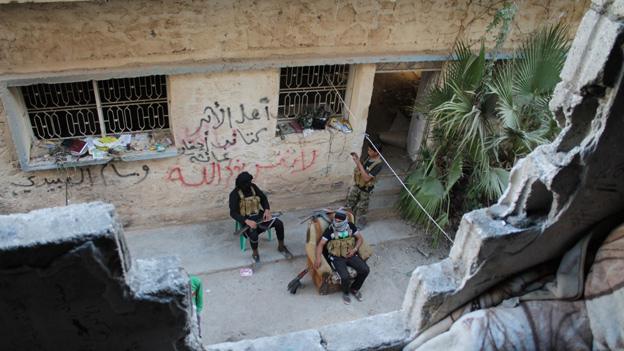Syria: Report shows how foreign fighters use social media
- Published
Richard Watson reports for BBC Newsnight
A report has cast unprecedented light on how foreign fighters engaged in the Syria conflict are using social media.
The International Centre for the Study of Radicalism, external report says they are using social media to document their role in the conflict in real time.
The report reveals high numbers are getting information from unofficial "disseminators", individuals not affiliated to any militant group.
It identifies spiritual authorities who fighters look to for guidance.
"This is the most socially mediated conflict in history," Shiraz Maher, one of the report's authors, told BBC Newsnight, "they want to use it in order to inspire people to come out and join their cause."
Data from 114 individuals was analysed by the ICSR, comprising 121 unique accounts - 86 from Facebook and 35 from Twitter. The researchers mapped foreign fighters' social media connections, who they follow and who follow them.
Country of origin
Their analysis reveals the majority of the individuals come from the UK (25.4%), followed by France (14%), Germany (12.3%), Sweden (8.8%), Netherlands (7%), and Belgium (5.3%).
Eastern European countries (Albania, Bosnia, Bulgaria, Kosovo, Macedonia, Serbia) collectively comprised 6.1%, while non-European Westerners (Australians, Canadians, and US Americans) accounted for 7%.
It was not possible to determine the country of origin of 13.2 %.
Security chiefs in Whitehall believe the number of British men thought to have fought in Syria has now reached the upper end of the low hundreds.
So far this year, more than 30 people have been arrested in Britain on suspicion of terror offences, compared with 24 in the whole of 2013.
In terms of group affiliation, the ICSR analysis shows that 61.4% of foreign fighters in the sample were identified as members of rebel jihadist group the Islamic State in Iraq and the Levant (Isis), while 17.5% were thought to belong to the Al-Nusra Front, a rival group, linked to al-Qaeda that has become a key player in the conflict.
"The overwhelming majority within our database belong to Isis... they are very willing to take foreign fighters," Shiraz Maher says.
Some 29% of the fighters analysed could not be coded as belonging to any group, while the Free Syrian Army, Liwa al-Tawheed and Ahrar al Shamm comprised 2% of the total sample combined.
'New disseminators'
The academic analysis also reveals the official Twitter accounts of jihadist groups are less important as sources of information for foreign fighters in Syria, than so-called "disseminator accounts" run by sympathetic individuals who lend moral and political support to those involved in the conflict.
These accounts spread real-time information from the battlefield, publish links to new videos and official statements, and share photographs of battles, equipment and meetings.
Examining the 32 most popular accounts followed on Twitter by foreign fighters in the dataset, 11 of those are "disseminator" accounts, with only one being the official account of a fighting group.
Of the 12 most popular disseminators, six are among the most mentioned and re-tweeted accounts by foreign fighters.
New spiritual authorities
The ICSR discovered three of the top 10 most liked Facebook pages by foreign fighters in their sample belong to religious figures, suggesting there is an emerging set of new clerical authorities who foreign fighters in Syria consider important and influential sources of religious and political motivation and support.
These include two preachers who both speak English and regularly communicate with Western Muslim audiences through social media platforms.
Ahmad Musa Jibril, a Palestinian-American cleric who is in his early 40s, is followed on Twitter by 60% of foreign fighters, the academics say.
The ICSR report says he does not openly incite his followers to violence nor does he explicitly encourage them to join the Syrian jihad. Instead, he adopts the role of a cheerleader, supporting the principles of armed opposition to Assad.
Ifthekar Jaman, who's in Syria, has been speaking to 'Newsnight' reporter Richard Watson
Musa Cerantonio, a 29-year-old Australian convert to Islam who frequently appears on satellite television has become an outspoken supporter of Isis, because he says it aims to create a regional Islamic state or caliphate. He is followed on Twitter by 23% of foreign fighters in the sample.
The report authors stress that these findings should not suggest that either individual is a member of Isis or the al-Nusrah Front, nor that it should be taken as indicating that they are involved in facilitating the recruitment of foreign fighters.
A pointed example of Mr Jibril's interaction with a foreign fighter came after the death in December last year of Ifthekar Jaman, a British man who told BBC Newsnight he was "doing his duty" by fighting for a group linked to al-Qaeda in Syria.
Within hours of Ifthekar's death Ahmad Musa Jibril sent a message of condolence via direct message on Twitter to Ifthekar's brother, which was then published publically on Ifthekar's brother's timeline.
Mr Jibril did not respond to BBC Newsnight's invitation for an interview. Mr Cerantonio declined to give an interview. He said although he supports Isis he has also been critical of the group.
The Newsnight report from Tuesday 15 April 2014 is available to watch on BBC iPlayer and Newsnight website.
- Published24 December 2013
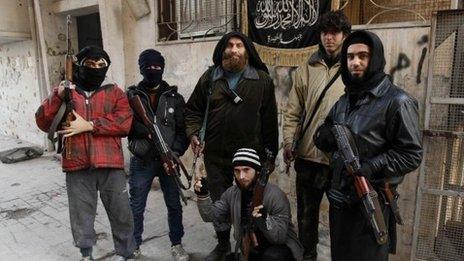
- Published17 December 2013
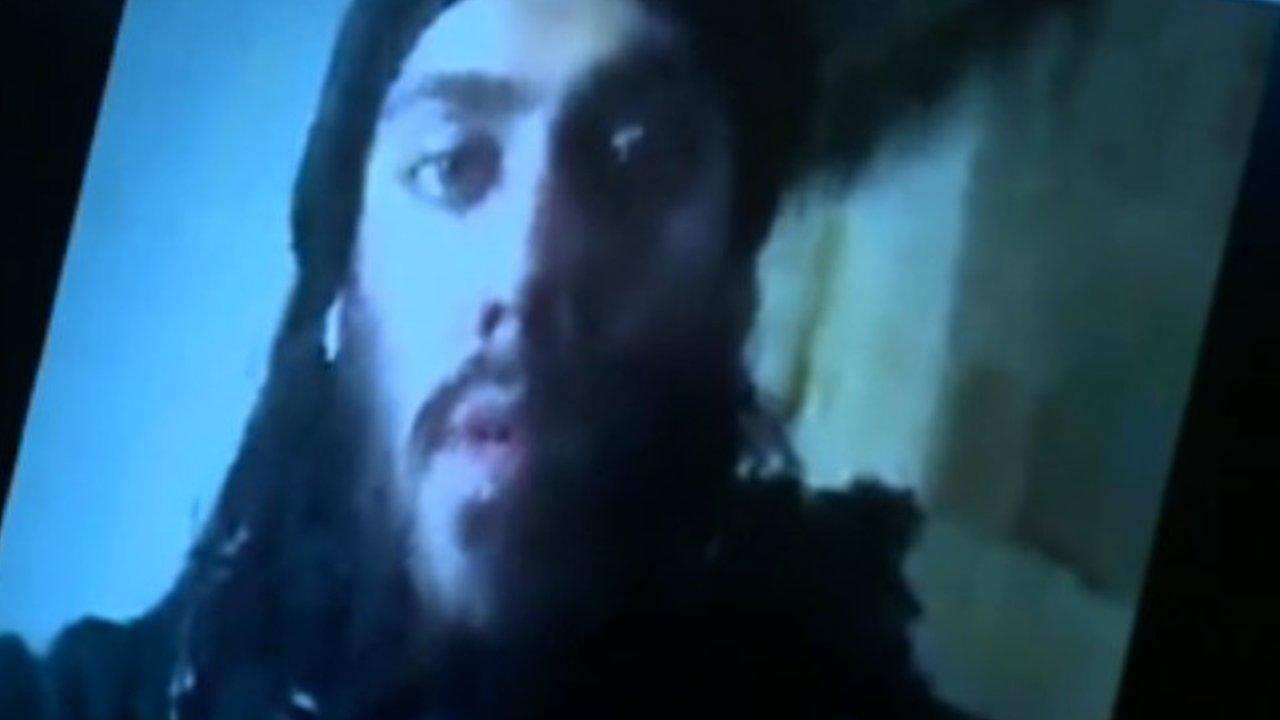
- Published13 December 2013
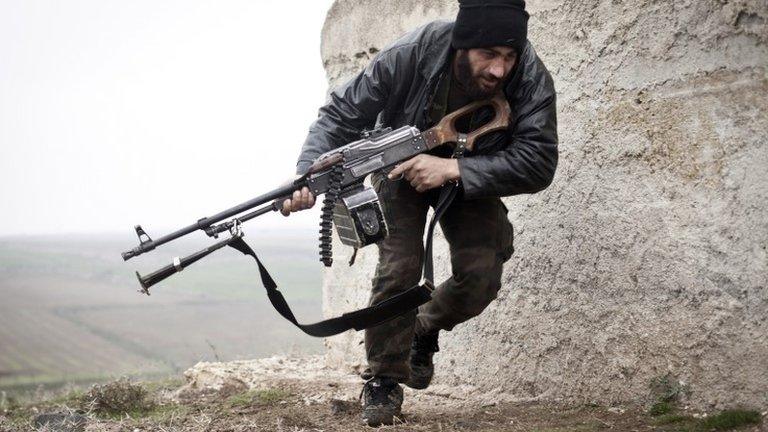
- Published21 November 2013
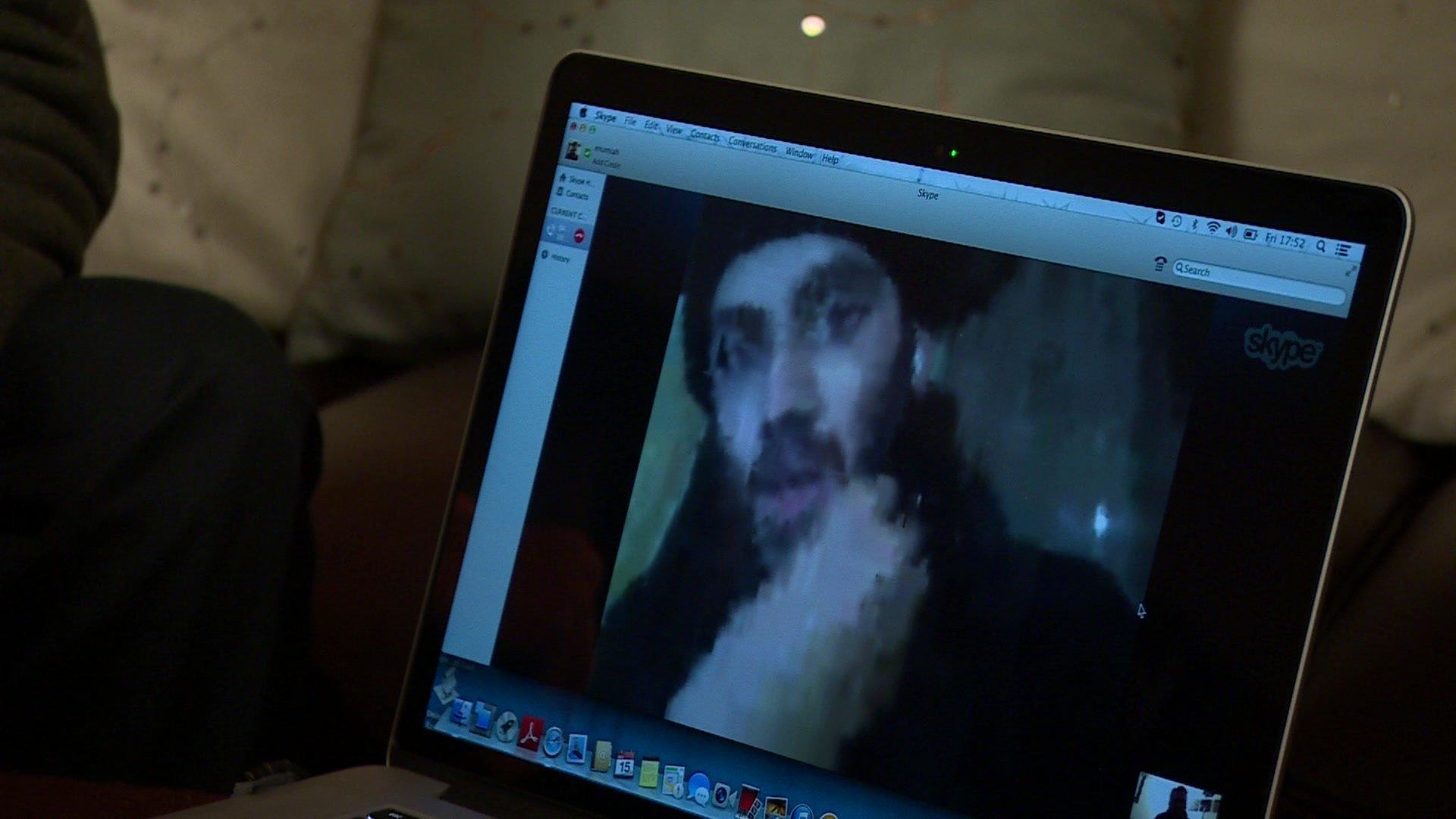
- Published20 December 2013
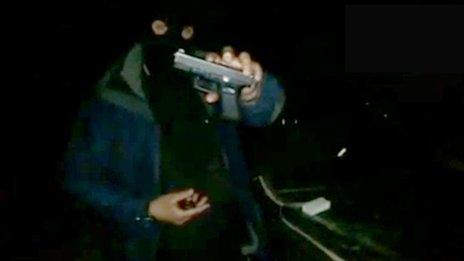
- Published7 November 2013
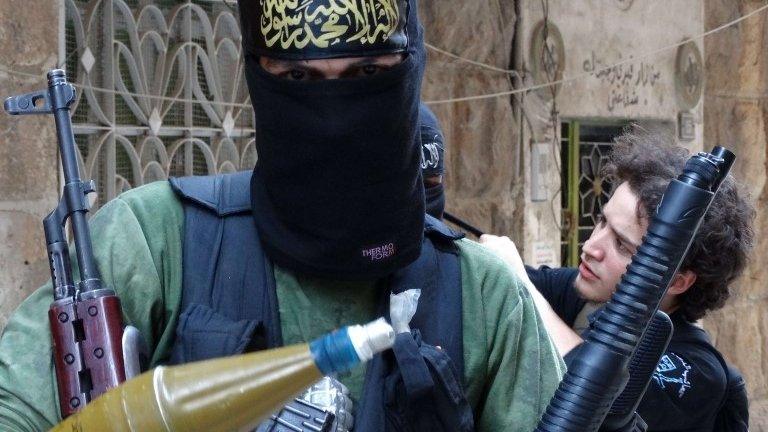
- Published15 October 2013
